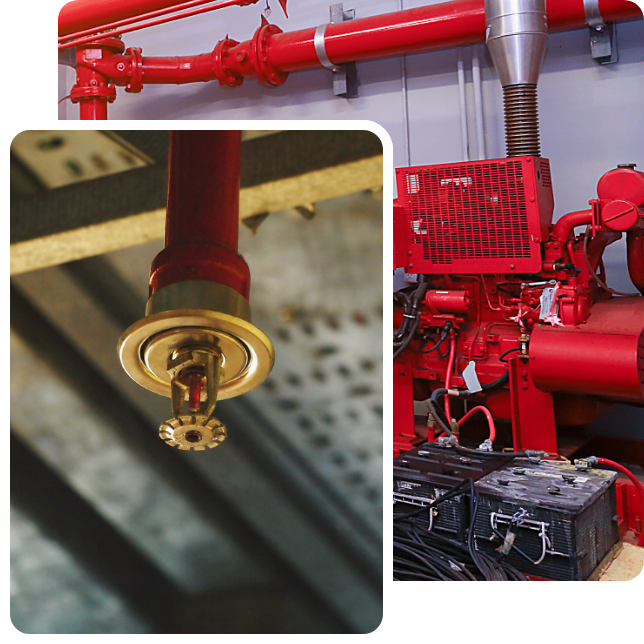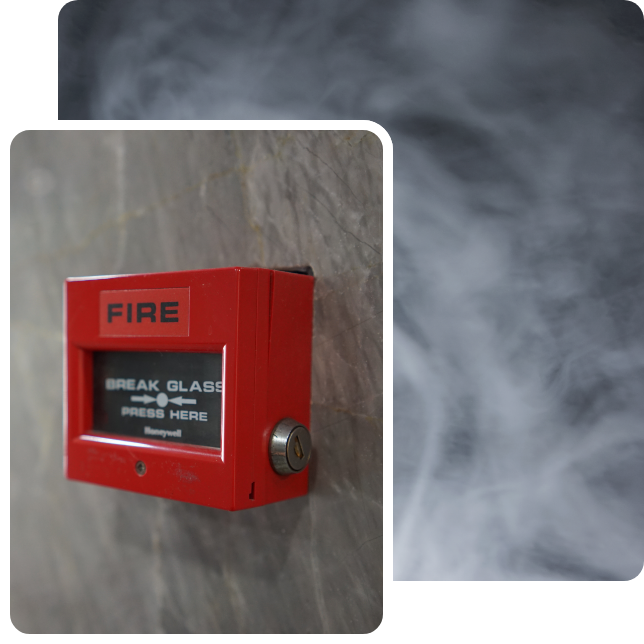Commercial Fire Alarm Installations
At Sygma, we are BAFE certified for the installation and commissioning of a commercial fire alarm system, and we have a team of highly qualified professional engineers to assist with your fire alarm installation to protect life and property. We supply, install and service a wide range of fire detection and alarm systems in commercial premises throughout the UK.

Fire Alarm Installation Process at Sygma
Our service includes the design, fitting and installation of your new commercial fire alarm system. Here are the steps taken by our fire alarm system team:
- Fire System Designers will survey your building and discuss objectives regarding the output of your fire system. After agreeing on a commercial fire alarm system that meets the requirements and objectives set out in your fire risk assessment, a quotation will be provided.
Our fire alarm installation team will then return to your commercial building to:
- First fix the system cabling and provision of power to the control and indicate equipment located as per the specification drawings set out during the design.
- Install the Fire Alarm Control Panel and insulation test for cable continuity.
- Install device mounting bases and termination of cables Second fix of detection and alarm devices.
- Energise the circuits and conduct system checks to ensure all devices are connected to the master panel.
- Conduct cause & effect programming.
- Conduct commissioning of the system in preparation for handover to the client.
- Install zone plans and produce documentation in accordance with the British Standards recommendations.

Fully Qualified for Total Peace of Mind
Whilst it is technically possible for anyone can install a commercial fire alarm; it is strongly recommended that the installer has a good understanding of British Standard BS 5839 and be able to design and install a fire alarm system that meets these requirements. As fire detection and alarm systems are (almost all) electrical systems, it is also recommended that you engage an organisation cable and experienced in understanding and meeting the requirements of BS 7671 & the IET wiring regulations. At Sygma, we hold the BAFE SP203-1 accreditation in the installation of fire detection and alarm systems along with all the necessary electrical certifications from the NICEIC, which means we can handle all stages of the installation, including the provision of suitable electrical installation and power to the main fire alarm panel.
We are also an approved contractor by SAFEContractor, CHAS and ConstructionLine. This ensures that our commercial fire alarm system installation team works to the latest standards, regulations and certifications – and provides you with the most secure peace of mind.
Sygma will then prepare a planned maintenance schedule and provide certificates to ensure your building meets regulation standards. Please reach out to our team to book a free on-site survey and benefit from our commercial fire alarm system installation service.
Contact Us
We’re proud to protect our clients across the UK.
54 Poland St
London
W1F 7NJ
Sygma - Kent Office
Unit 4A Geerings Business Centre
Kent
TN23 1EP
Sygma - Suffolk Office
Unit K, Blois Meadow Business Centre
Suffolk
CB9 7BN